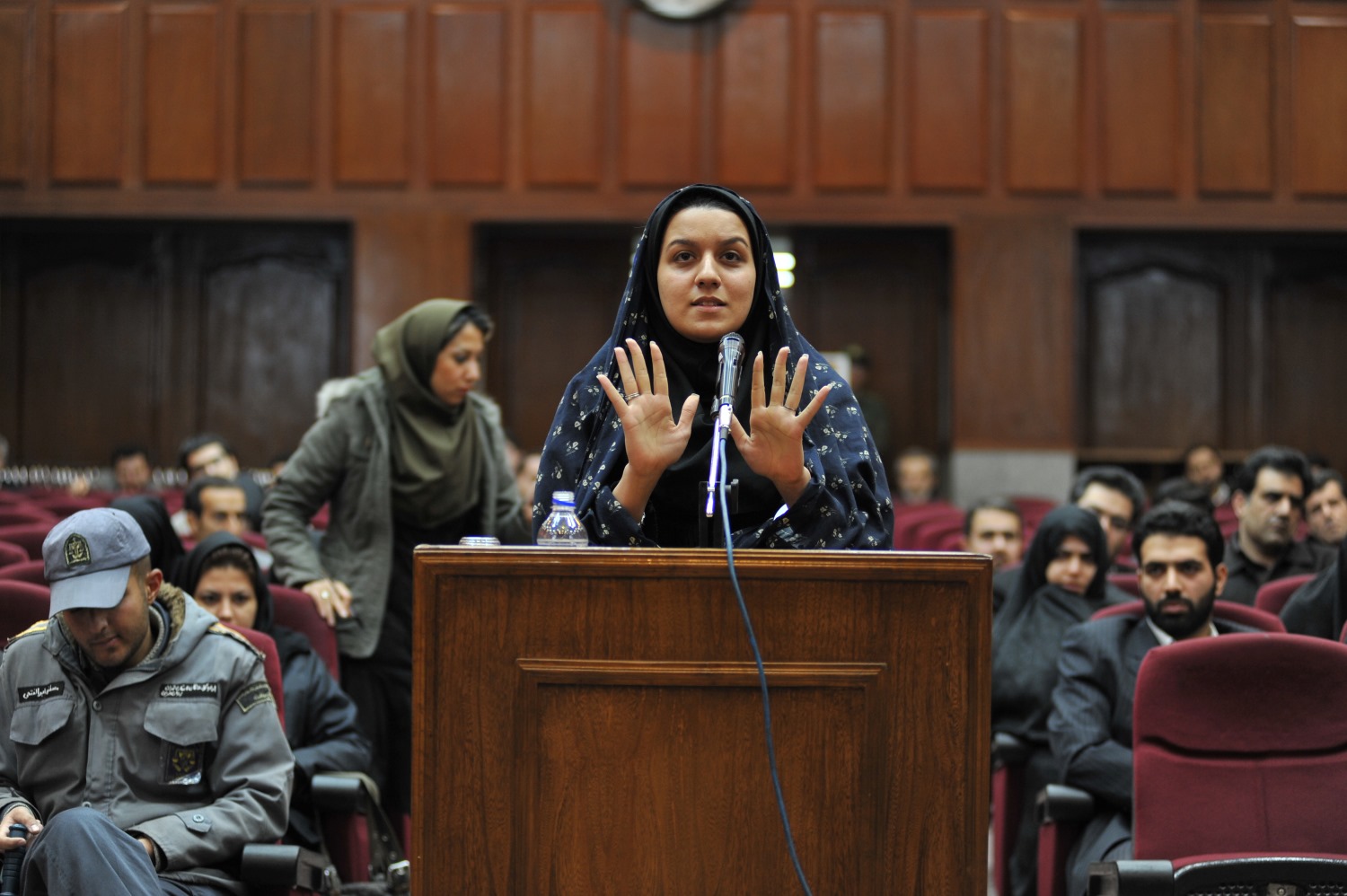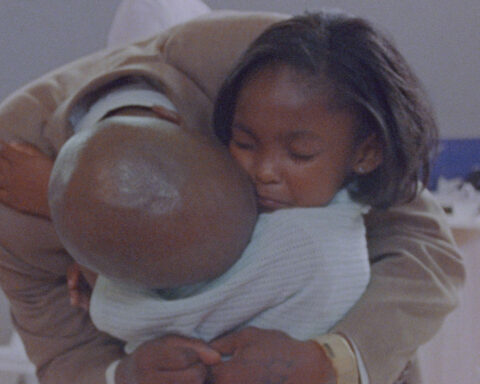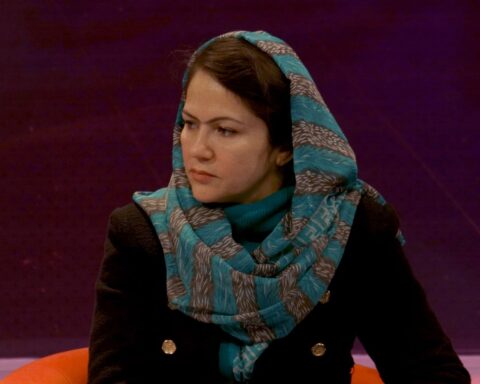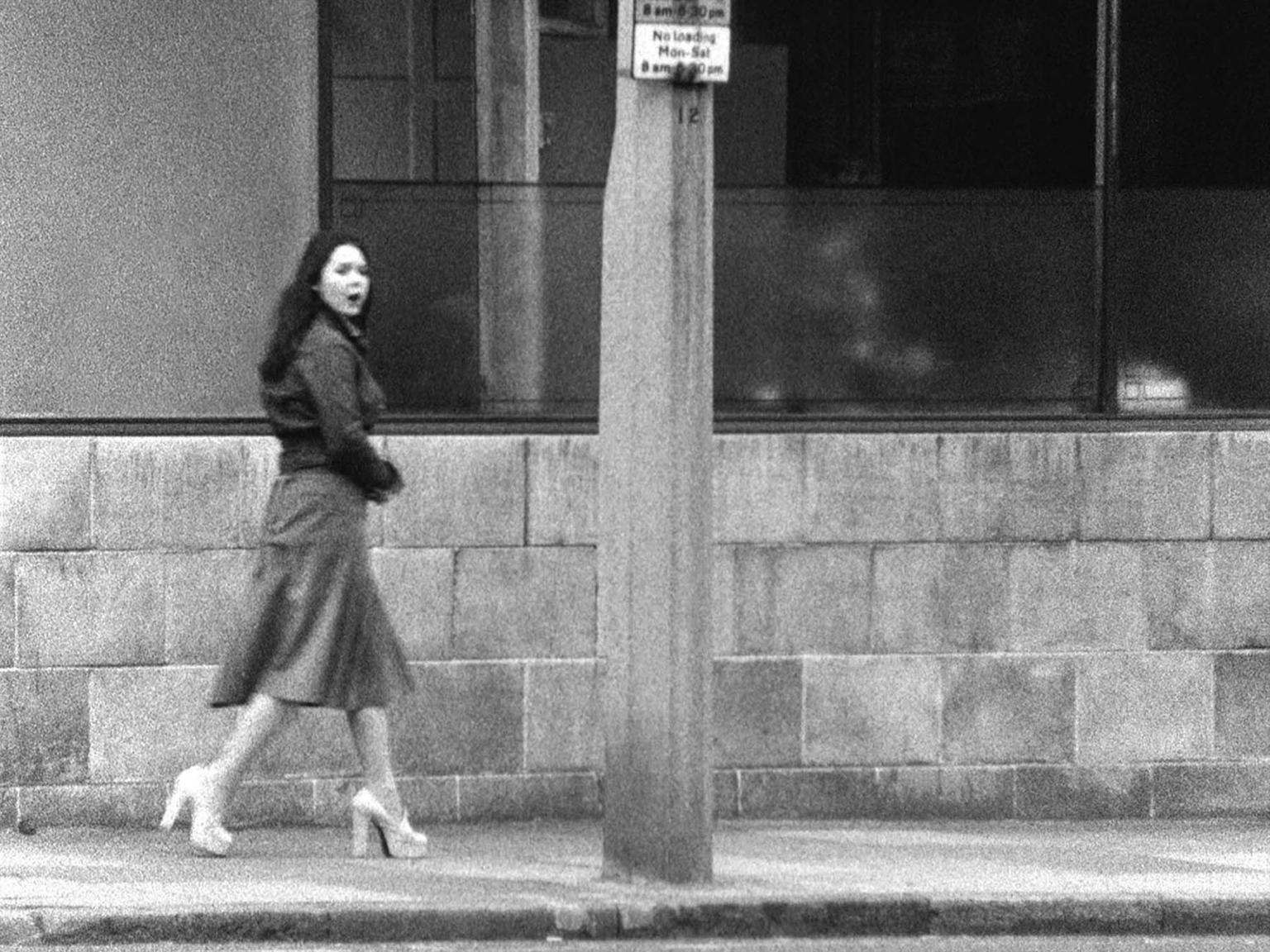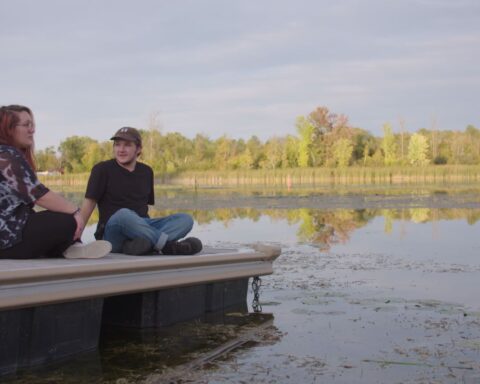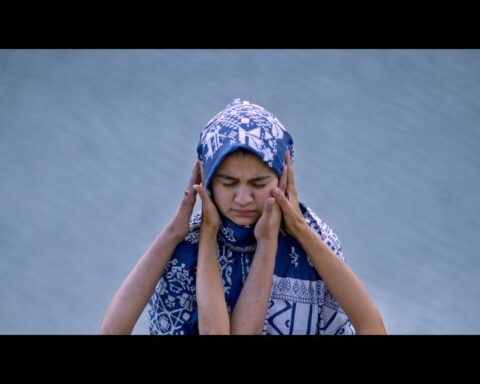Seven Winters in Tehran
(France/Germany, 100 min.)
Dir. Steffi Niederzoll
The case of Reyhaneh Jabbari captured the world’s attention in 2014. The story of the young Iranian woman awaiting her execution, or “blood revenge,” as the court calls it, put the spotlight on two factors in a complicated trial. On one hand, the story illustrated how the onus was now on the deceased’s family, who could choose to forgive Reyhaneh after was found guilty of killing their father. Alternatively, their eldest son could literally kick the chair from under Reyhaneh and let her hang to death in an “eye for an eye” score settling. The case also stressed the dire situation for women’s rights in Iran, as Reyhaneh maintained that she stabbed the man when he tried to rape her. With intimate access to Reyhaneh’s thoughts and to fresh perspectives form her family members, Seven Winters in Tehran shares an urgent story of the fight for women’s rights.
Director Steffi Niederzoll chronicles Reyhaneh’s story so that it remains gripping regardless of whether one know the outcome. The film features extraordinary access to Iran’s prisons and legal system thanks to clandestine recordings. Seven Winters in Tehran opens with a title card that signals the heavy risk that Reyhaneh’s family took in recording her experience. Moreover, the covert nature of this material speaks to the degree of secrecy that surrounds the legal process, particularly for Reyhaneh’s case. The film offers a portrait of a family fighting with all its heart to save a daughter and sister.
The Case
Seven Winters in Tehran offers a relatively thorough account of the incident for which Reyhaneh was found guilty. Interviews with Reyhaneh’s mother, Shole Pakrav, and father, Fereydoon Jabbari, piece together the events and the young woman’s character. Details from her sisters, Shahare and Shahrzad, similarly speak to the convoluted proceedings that saw Reyhaneh charged swiftly and severely. Shahrzad, the family’s youngest daughter, was also accused of being an accessory in one of the investigations many dramatic twists.
Niederzoll, however, doesn’t go the sensational route that true crime stories often do. Instead, Seven Winters in Tehran interrogates a miscarriage of justice and a system that supresses women by design. Reyhaneh’s thoughts appear in voiceover via recorded conversations or in letters read by actress Zar Amir Ebrahimi (Holy Spider). Reyhaneh recounts the trial and the investigation that dismissed her allegations of self-defence. She’s asked why she didn’t just let the rape happen and report it later. When the judge shows interest in Reyhaneh’s story, he’s quickly replaced by a figure from the regime with no legal expertise. Between the accounts of the investigation and the characterization of the trial, the doc present a compelling case that the system is stacked against women.
When Reyhaneh receives her foregone conviction, moreover, the sentence of the blood revenge further underscores the misogyny. In order to forgive Reyhaneh, as Shole pleads for them to do, the family of the deceased must accept her defense. To forgive her is to admit that their father was an aggressor and not a victim. The punishment has a pervasive ripple effect on both families.
The Cost of the Crime
It takes a particularly dire toll on Shole. The mother makes phone call after phone call to the dead man’s son and even offers to take Reyhaneh’s place. As she and her daughters turn to the media, the case drums up support for Reyhaneh at the eleventh hour. Every second counts as Fereydoon suspects the media attention and heightened scrutiny of both the blood revenge and the status of women in Iran may backfire and expedite the execution. The escalating tension suggests that he is correct.
While the film offers intimate glimpses into the love and pain that fuel this family’s quest for justice, Niederzoll situates Reyhaneh’s story among many. There are accounts from other women whom Reyhaneh encountered in prison. She calls Tehran’s Evin prison a “mass grave for women.” Some women who were incarcerated with Reyhaneh tell how they were forced into sexual slavery by their parents, or did the opposite of Reyhaneh and didn’t fight back during a rape. They went to jail, anyway, punished several times over for a man’s crime.
Seven Winters in Tehran adds to the inhospitable environment of the prisons by evoking their design through miniatures and sets. Access is, of course, off limits to the real deal. This sense of absence underscores many of the common points among the women’s stories: justice doesn’t live within these walls. Similarly, the new interviews conducted with Shole, Shahare, and Shahrzad, who now live in Germany, testify to the danger of speaking openly about systemic injustice in Iran, while virtual interviews with Fereydoon, who still can’t leave the country, make evident the possibility of further reprisals. In potently examining this one case, Seven Winters in Tehran finds no sense of justice. Reyhaneh’s family nevertheless maintains a brave face when speaking about the situation, if only to help draw attention to the many more women who will be trapped by the cycle.




